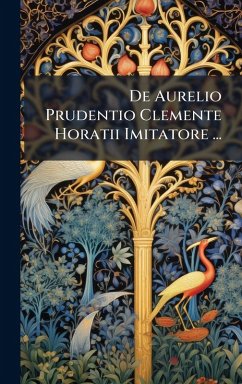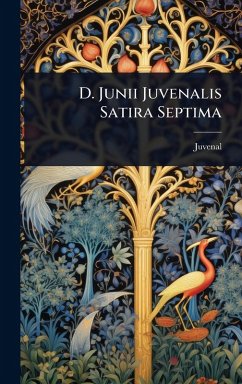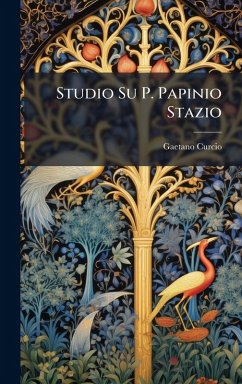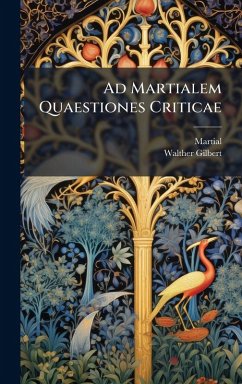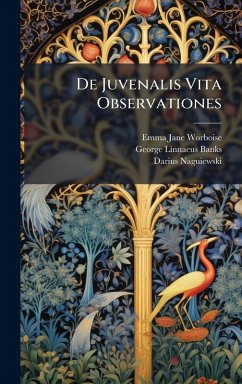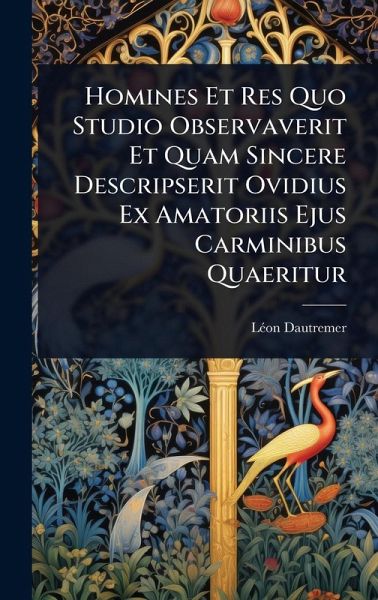
Homines Et Res Quo Studio Observaverit Et Quam Sincere Descripserit Ovidius Ex Amatoriis Ejus Carminibus Quaeritur
Versandkostenfrei!
Versandfertig in über 4 Wochen
28,99 €
inkl. MwSt.
Weitere Ausgaben:

PAYBACK Punkte
14 °P sammeln!
This 1900 thesis, titled "Homines Et Res Quo Studio Observaverit Et Quam Sincere Descripserit Ovidius Ex Amatoriis Ejus Carminibus Quaeritur," by LÃ(c)on Dautremer, delves into the works of Ovid, specifically examining how the Roman poet observed and sincerely described people and things in his amatory poems. Written in Latin, the study offers a critical analysis of Ovid's poetic techniques and his portrayal of human nature and the world around him. It will be of interest to scholars and students of classical literature, Latin language, and the works of Ovid. This work has been selected by sc...
This 1900 thesis, titled "Homines Et Res Quo Studio Observaverit Et Quam Sincere Descripserit Ovidius Ex Amatoriis Ejus Carminibus Quaeritur," by LÃ(c)on Dautremer, delves into the works of Ovid, specifically examining how the Roman poet observed and sincerely described people and things in his amatory poems. Written in Latin, the study offers a critical analysis of Ovid's poetic techniques and his portrayal of human nature and the world around him. It will be of interest to scholars and students of classical literature, Latin language, and the works of Ovid. This work has been selected by scholars as being culturally important, and is part of the knowledge base of civilization as we know it. This work was reproduced from the original artifact, and remains as true to the original work as possible. Therefore, you will see the original copyright references, library stamps (as most of these works have been housed in our most important libraries around the world), and other notations in the work. This work is in the public domain in the United States of America, and possibly other nations. Within the United States, you may freely copy and distribute this work, as no entity (individual or corporate) has a copyright on the body of the work. As a reproduction of a historical artifact, this work may contain missing or blurred pages, poor pictures, errant marks, etc. Scholars believe, and we concur, that this work is important enough to be preserved, reproduced, and made generally available to the public. We appreciate your support of the preservation process, and thank you for being an important part of keeping this knowledge alive and relevant.




